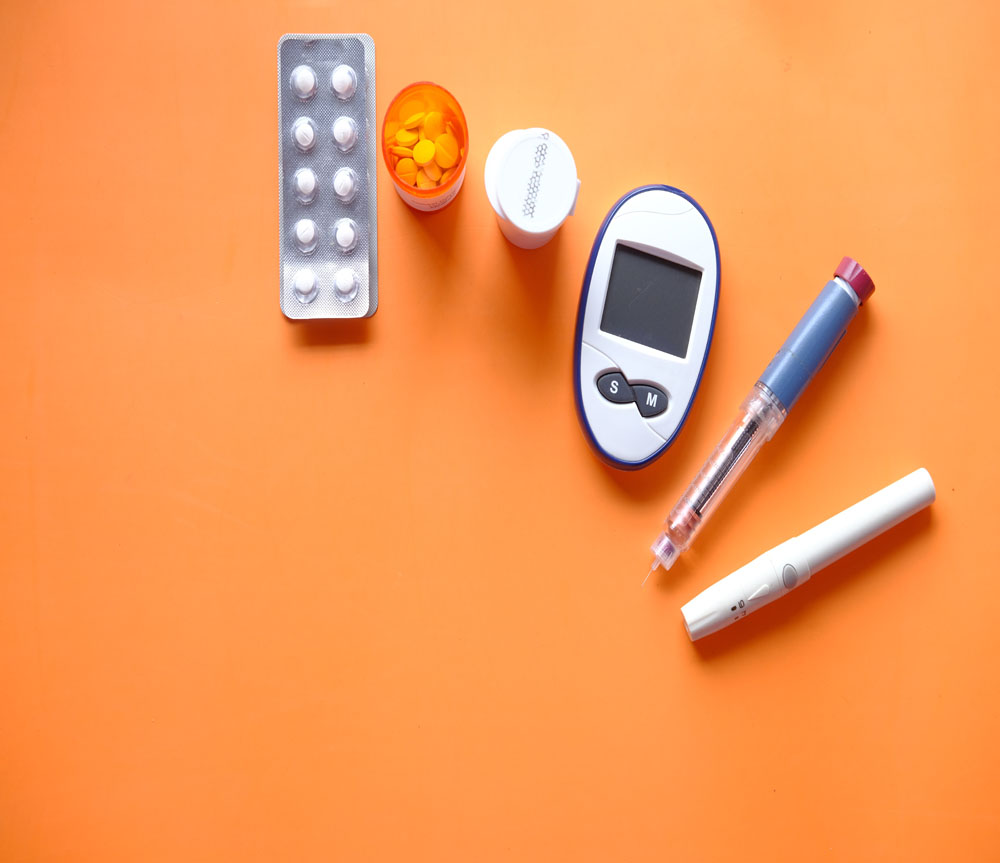Type 2 diabetes was once considered a disease for the elderly. With lifestyle changes, it became common for middle-aged people. Nowadays, its genetic transmission to the next generation is taking children aged 10-18 in its stride.
The cases of Type 2 diabetes have increased multifold in a couple of years. While a sedentary lifestyle is a major contributing factor, exposure to the COVID-19 virus contributes too. A study concluded that those who had COVID-19 were at about 40% higher risk of acquiring Type 2 diabetes within a year.
Diabetes is a chronic curse where your body loses the ability to either produce the required amount of insulin to metabolize your blood glucose or metabolizes it incompletely. This results in higher glucose concentrations in the bloodstream. In the longer run, Type 2 diabetes may cause the following life-threatening complications:
- Cardiovascular Disease: Chest pain, heaviness, high blood pressure, narrowing of the arteries, heart attack, stroke, etc.
- Neuropathy: Numbing and tingling of fingers and toes due to long-term nerve damage.
- Nephropathy: Kidney dysfunction or damage.
- Retinopathy: Blurred vision, blindness, cataract.
- Foot Amputation, Hearing loss, Depression, Dementia, Loss of focus, Dental issues, etc.
- Diabetic Ketoacidosis: Extreme build-up of ketonic acids in the bloodstream due to consumption of stored fats in the absence of enough insulin. If left untreated, it could result in brain swelling and sudden death.
Symptoms to Look Out
Type 2 diabetes is a silent attacker. You may live with the disease for years before it could be diagnosed. Further, some symptoms may be superficial or indicate another ailment.
If you have a family history of diabetes consult your general physician (GP) at the onset of the following symptoms:
- Persistent weakness and tiredness
- Blurry vision
- Increased water intake and frequent urge to pee
- Tingling sensation in the fingers and toes
- The increased healing time of minor cuts/ sores
- Excessive weight loss
Do’s (If you are pre-diabetic or diabetic)
- Follow a healthy diet plan: Reach out to your dietician and figure out a nutritious, fiber-rich diet containing whole grains, nuts, fruits, and vegetables.
- Follow an exercise regime: Figure out what exercises you can perform for at least 30 minutes daily. Consult your physician before working out too rigorously as unsupervised workouts can be harmful to your body. Yoga asana such as Savasana, Kapalbhati Pranayam, etc. help in diabetes control too.
- Follow the prescribed medical course religiously: Stick to your prescription, whether oral or intravenous (insulin). Avoid any breaks or under or over-doses.
- Check your blood glucose level regularly: Measure your blood glucose level, both fasting (empty stomach) and random, regularly and chart it. Discuss major fluctuations with your GP. Low blood glucose is as harmful as high levels.

Don’ts (To prevent the onset of diabetes)
If you find yourself at risk of developing Type 2 diabetes, avoid the following to delay the onset of this “controlling” disease.
- Don’t consume processed food rich in fats and carbohydrates such as refined sugar, and canned and fried food.
- Don’t drink and smoke.
- Don’t drink carbonated beverages.
- Don’t be a potato couch.
- Don’t miss regular doctor visits and health check-ups.
- Don’t lose on your beauty sleep (7-8 hours recommended)
Final Thoughts
Type 2 diabetes is a malice of the modern world. Despite medical advances, it can only be kept under control and not treated completely. Taking a controlled approach in the present is easier than a total ban on your favorite carvings. If you find yourself in the high-risk group for Type 2 diabetes, do visit your physician now. Remember, health is wealth.
To read more on how to ensure self-care, click here!
Disclaimer: The author has consulted a registered general physician and a dietician to conceptualize this article. Readers’ discretion is further advised.


